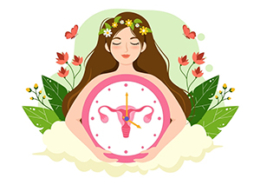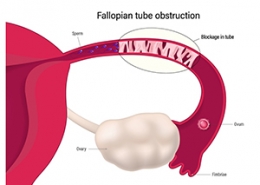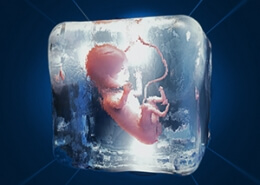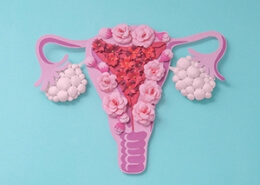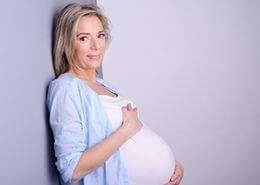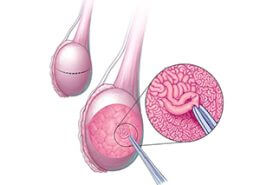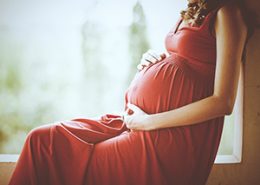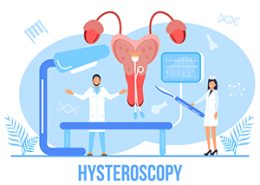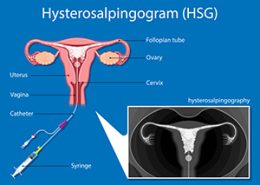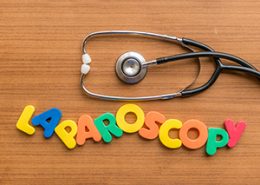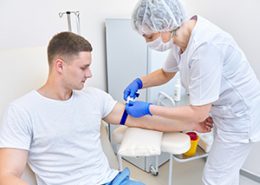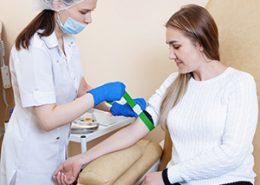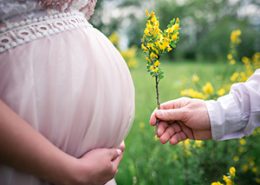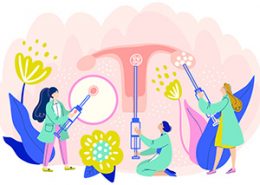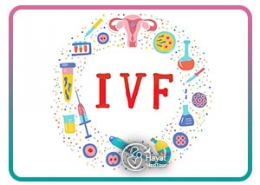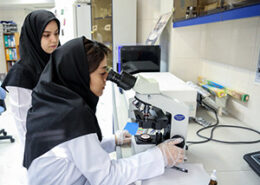Is it possible to get pregnant with diminished ovarian reserve?
Ovarian reserve refers to the number and quality of your eggs. If your ovarian reserve has decreased, the number and quality of eggs are lower than expected for your age. Normally, with increasing age and after the age of 30, the ovarian reserve starts to decrease, and after the age of 40, it continues at a faster rate until reaching the age of menopause. But the reduction of ovarian reserve does not always happen with age, and ovarian reserve may decrease in some people at a young age for various reasons.
Ovarian reserve is directly related to women’s fertility. So that the reduction of ovarian reserve can reduce the chance of pregnancy. But it does not mean that it is not possible to get pregnant with the reduction of ovarian reserves.
The use of ovulation stimulation drugs and infertility treatment methods can help women with reduced ovarian reserve to conceive.
In this article, we will examine the causes and symptoms of ovarian reserve reduction, prevention methods, and the possibility of its treatment.
What is the ovarian reserve?
Ovarian reserve is defined as the number of follicles in the ovaries. Every baby girl is born with 1 to 2 million follicles in the ovaries. During puberty, the number of follicles reaches about 300,000 to 500,000, and with the onset of ovulation, one or more follicles mature and leave the ovary in the form of eggs. With increasing age, the ovarian reserve decreases, so that at the age of 30, the ovarian reserve reaches about 25,000 follicles, and around menopause, only 1,000 follicles remain in the ovaries.

In each menstrual cycle, one or more eggs are released from the ovaries. If the egg is fertilized by the sperm, it leads to pregnancy. With the reduction of ovarian reserves, the ovulation process is disturbed; therefore, diminishing ovarian reserves can be one of the causes of infertility in women.
How much ovarian reserve is suitable for pregnancy?
If there are larger ovaries; we will have more eggs in the ovary. Normal ovarian reserve in reproductive age is usually between 4 and 5.1 ng/ml. Ovarian reserve above 5 can be one of the symptoms of polycystic ovary syndrome (PCOS). If the ovarian reserve is less than 1 ng/ml, women’s fertility is reduced. If the ovarian reserve is not too low, there is a possibility of pregnancy with ovulation stimulation and assisted reproductive methods.
What is the cause of ovarian reserve reduction?
Aging is the main cause of ovarian reserve reduction. However, other factors such as underlying diseases, endometriosis, ovarian surgery, smoking and alcohol consumption, chemotherapy and radiation therapy in the pelvic area, autoimmune diseases, some genetic abnormalities, and stress also play a role in reducing ovarian reserve. In some cases, conflict with these problems can cause a drop in ovarian reserve at a young age and affect fertility in women. In all cases, the cause of ovarian reserve reduction is not known, and sometimes this problem is caused by unknown causes.
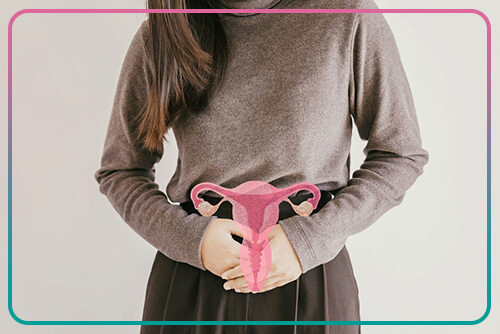
Does the egg (oocyte) retrieval in the IVF process reduce ovarian reserve?
Normally, in each menstrual cycle, one egg matures and is released from the ovary. But in the IVF process, the specialist doctor stimulates the ovaries to grow more than one egg by prescribing hormonal drugs. The number of eggs that develop in the IVF process is very low compared to the total number of follicles in the ovaries. Therefore, egg retrieval in the IVF process alone cannot reduce ovarian reserve.
What are the Signs and Symptoms of Diminished Ovarian Reserve?
In general, significant symptoms are not observed in women who have diminished ovarian reserve. But some symptoms can be a sign of reduced ovarian reserve, these symptoms included:
- Pregnancy problems such as delayed pregnancy or infertility
- Delay or interruption of monthly periods
- Short monthly periods
- Heavy periods
- Miscarriage (due to low-quality eggs)
It should be noted that ovarian reserve reduction is not always associated with these symptoms, and ovarian reserve may decrease gradually without any specific symptoms. Therefore, for the accurate diagnosis of ovarian reserve, it is necessary to perform the necessary tests and examinations.
What are the methods of evaluating ovarian reserve?
There are different methods to check ovarian reserve. These methods include:
-
AMH test
AMH hormone is one of the female hormones secreted in the ovaries after puberty. AMH hormone levels decrease with aging and reach zero after menopause. Therefore, one of the tests that evaluate ovarian reserve is the AMH test. Since the amount of this hormone does not fluctuate much during the menstrual period, the AMH test can be performed on any day of the menstrual cycle. This test is one of the best indicators of ovarian reserve.
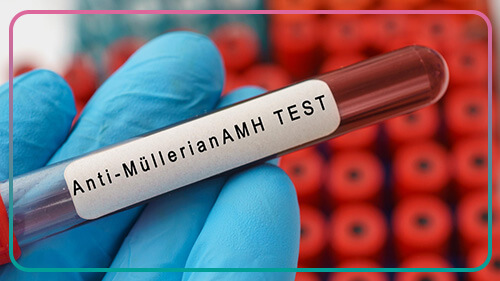
-
FSH test
FSH hormone is a hormone that is secreted from the pituitary gland and causes the growth of follicles in the ovaries. The level of this hormone varies during the menstrual cycle. The FSH hormone level is at its lowest at the beginning of the monthly cycle and gradually increases. Therefore, the best time to perform the FSH test is the second or third day of the menstrual cycle. The appropriate level of FSH hormone in reproductive age is less than 10 mllUl/ml. If the level of FSH hormone is higher, the chances of pregnancy are lower in women. After menopause, the level of this hormone reaches more than 40 mllUl/ml per day.
-
Estradiol test
: Estradiol hormone is one of the female sex hormones, and if its level was low, it could indicate a decrease in ovarian reserves. The estradiol test should be done on the second or third day of the menstrual cycle and does not need to be fast. The normal level of estradiol in reproductive age ranges from 30 to 400 pg/ml, and in postmenopausal women, the level of this hormone reaches 0 to 30 pg/ml.
-
Vaginal ultrasound
Vaginal ultrasound is performed in the first days of the menstrual cycle. In this ultrasound, the number of follicles with dimensions of 2 to 10 mm is counted. If the number of these follicles is less than 10, it can indicate a decrease in the ovarian reserve.
Can you get pregnant naturally with low ovarian reserve?

Having a suitable ovarian reserve is one of the influencing factors for a natural pregnancy. Women with a low number of eggs in their ovaries may not ovulate every month, which can reduce their chances of getting pregnant. In addition, the quality of the eggs has a direct relationship with the ovarian reserve, so with the decrease in the ovarian reserve, the quality of the eggs also decreases. For this reason, it is more difficult to form a high-quality embryo in women with reduced ovarian reserves.
Although it is difficult to get pregnant with low ovarian reserve, it is not impossible. If there are no other problems such as fallopian tube disorders, uterine abnormalities, and sperm disorders, there is a possibility of a normal pregnancy with low ovarian reserve. But it should be noted that with a further reduction of ovarian reserve, the chance of natural pregnancy also decreases.
Egg quality is the most important factor in determining embryo quality. Therefore, with the decrease in the ovarian reserve and the subsequent decrease in the quality of the eggs, the quality of the embryo also decreases. For this reason, more miscarriages are observed in women with reduced ovarian reserves than in other women. It is more difficult for low-quality embryos to implant and grows in the uterus, and this causes more miscarriages. Therefore, doctors recommend women get pregnant at a younger age and before the ovarian reserve decreases.
What is the best treatment for low ovarian reserve?
In general, there is no specific treatment for low ovarian reserve. But nowadays, in the initial stages of ovarian reserve reduction, to prevent the progression of the problem and improve the quality of eggs, the method of injecting stem cells into the ovaries is used. In this method, menstrual blood stem cells are isolated and cultured in the laboratory. Then these cells are injected into the ovaries to improve ovarian reserve and egg quality. learn more about stem cell therapy for female infertility: Treatment of infertility with stem cells
Studies conducted in the best infertility treatment centers in Iran show that the probability of natural pregnancy increases by 26% after 2 to 3 months of stem cell injection. If the ovarian reserve decreases too much, stem cell injection can no longer be used to improve the ovarian reserve.
Although, there is no specific treatment in cases of reduced ovarian reserve. But following some recommendations can help improve the quality of eggs. A healthy diet, regular exercise, enough sleep, avoiding smoking, taking medicinal supplements, etc. are some of the recommendations that can improve the quality of eggs. Learn how you can boost your egg quality: How can I improve my egg quality naturally?
Infertility treatment with low ovarian reserve
Infertility and delay in pregnancy is the main consequence of reduced ovarian reserve. Therefore, the most important concern in women with low ovarian reserve is maintaining pregnancy.
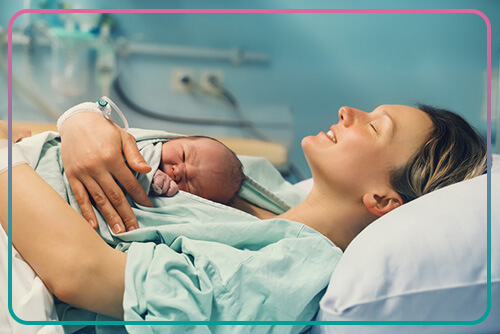
Using methods such as ovulation stimulation and assisted reproductive methods such as IVF and ICSI can help these women get pregnant. To treat infertility with low ovarian reserve, ovarian stimulation drugs are usually used to stimulate the eggs to grow. Then the eggs are removed from the ovaries by oocytes pickup and fertilized with the spouse’s sperm in the laboratory and an embryo is formed. Finally, one or two embryos are transferred to the mother’s uterus.
If the ovarian reserve is too low, usually the eggs are not of good quality. Therefore, the best way to get pregnant is to use a donated egg and do IVF with donor eggs. Doctors advise women who plan to delay pregnancy to freeze their eggs before the ovarian reserve is depleted to preserve their quality for when they plan to conceive.
Contact us to learn more about infertility treatment with low ovarian reserve.



